Medical malpractice suits are on the rise, and leading the pack is cardiology. According to a recent insurance study, between 2006 and 2015, the number of cardiology claims against medical malpractice insurance increased 91 percent, and total liability paid grew 142 percent. A host of issues are at play, most notably improper treatment and diagnostic errors, and to a lesser extent miscommunication, safety and monitoring, and equipment malfunction.
Improper Diagnosis and Treatment Leading the Way
Cardiologist admit that diagnostic errors aren’t a rarity in their practice. Myocardial Infarction (MI) is on the rise, can be difficult to diagnosis, and is the leading cause of action in improper diagnosis lawsuits. Sometimes it doesn’t show up on tests, and sometimes the symptoms mimic other conditions. If your doctor misdiagnosed you, or did not manage your expectations about MI treatment and risks, you may have a claim against your cardiologist.
In other cardiology cases, even with experienced cardiologists, complications arise. You may have a claim if the complication wasn’t handled properly. How did your doctor act? Or maybe didn’t act? If your doctor’s reaction to the complication was not reasonable, you would have a viable malpractice claim.
Lastly, with regard to improper treatment, sometimes patient care while in the hospital recovering is improper. Check to see that the hospital took excellent record-keeping of all medications and top-notch care in the hand-off between shifts. Request a copy of your file, which should be incredibly detailed.
Is Your Cardiologist Practicing Defensive Medicine?
Defensive medicine is the term coined for diagnosing and treating patients with an eye towards avoiding malpractice suits rather than doing what is best for the patient. In fact, the medical community speaks openly about its concern with the rising levels of medical liability, and how best to mitigate risk. But mitigating risk is not a physicians job. In fact, it may fly in the face of a physician’s duty, which is to give a reasonable level of care to the patient. If defensive medicine falls short of optimal care, as it often does, there may be a claim for medical malpractice.
If you believe your cardiologist, or any doctor for that matter, has committed malpractice, call a medical malpractice attorney today. Patients have been trained by doctors to expect some mistakes and shortcomings in their medical care, but you may be surprised to learn that in your case, that expectation is unreasonable, and actionable.
Related Resources:
- Find a Medical Malpractice Attorney Near You (FindLaw’s Lawyer Directory)
- 3 Myths About Medical Malpractice Lawsuits (FindLaw Injured)
- Common Examples of Medical Negligence (FindLaw Injured)



